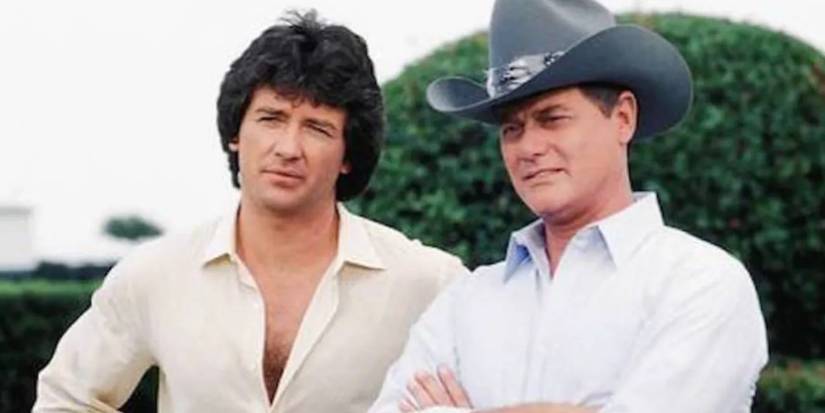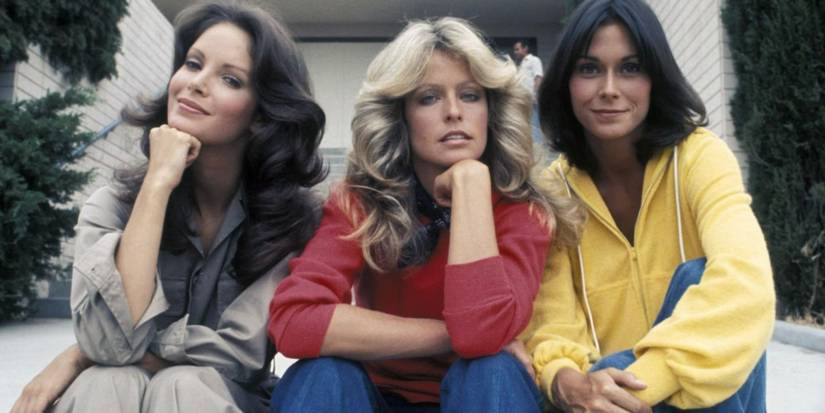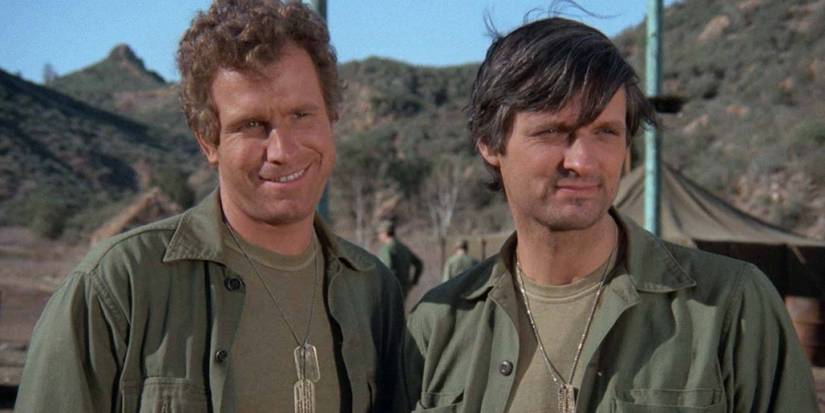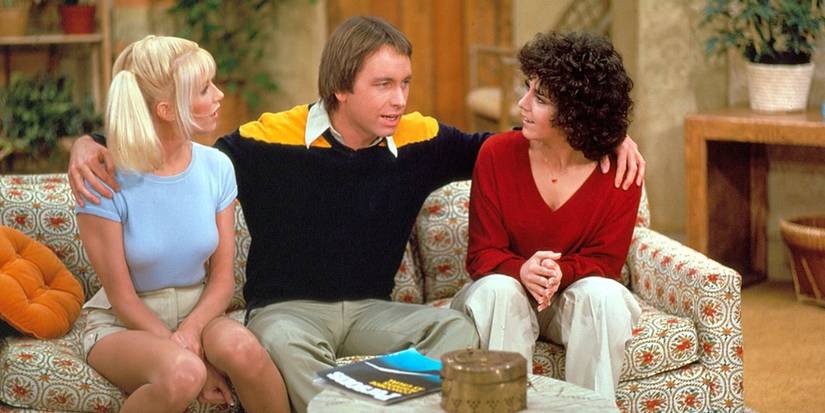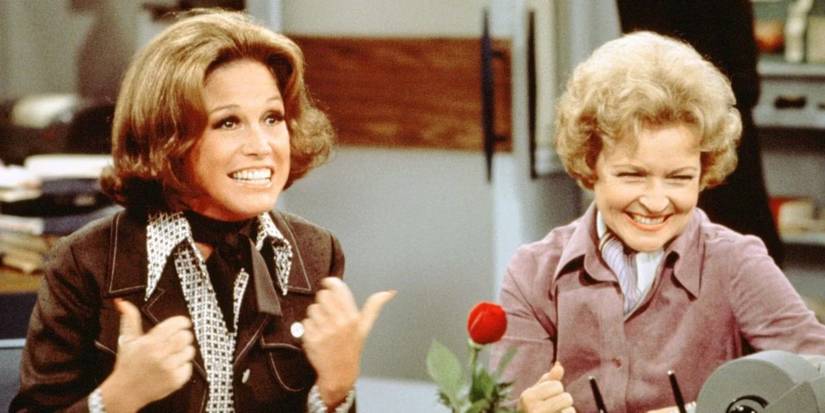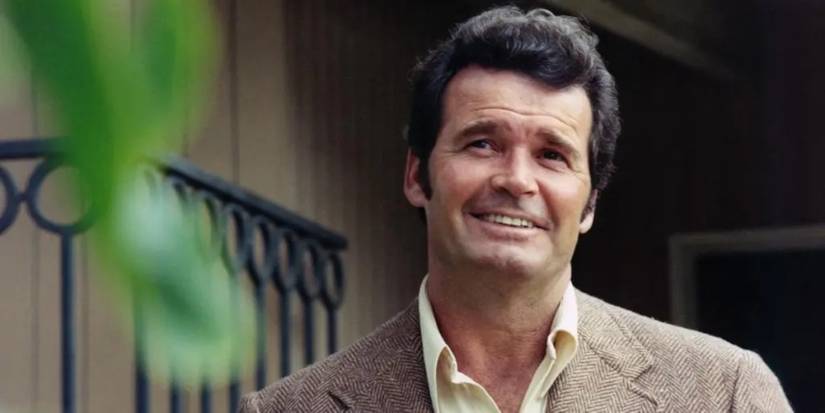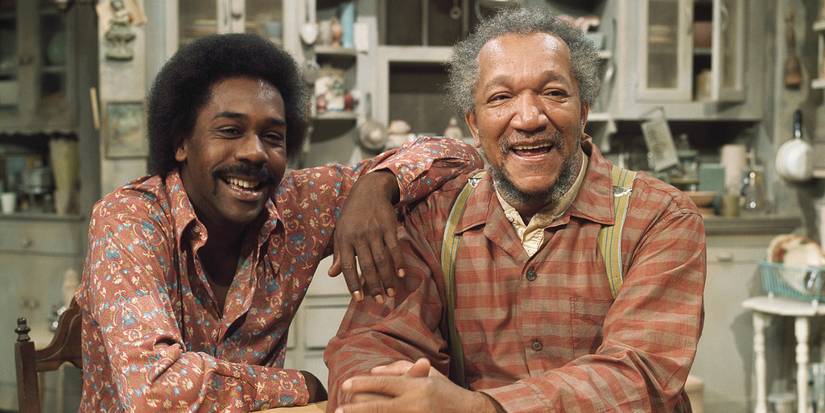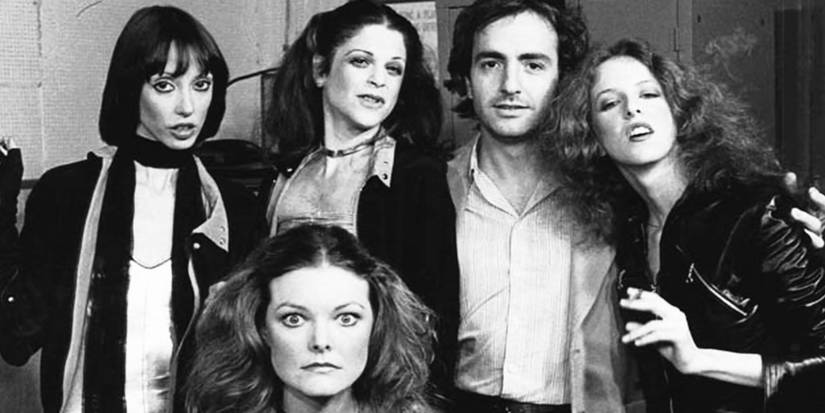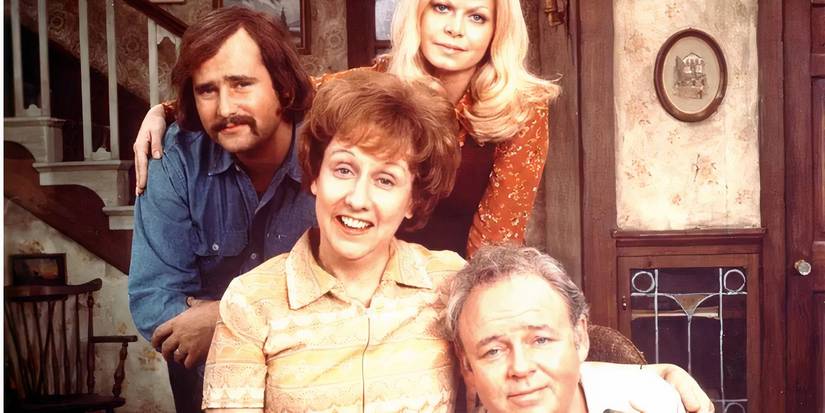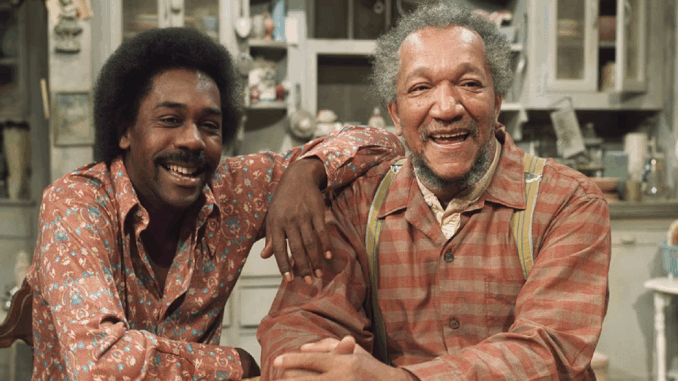
These programming changes would not only usher in creative geniuses like Norman Lear but also shape the future of television for years to come. The following 1970s shows influenced the next wave of television shows and the viewers who watched them.
10. ‘Dallas’ (1978–1991)
Created by David Jacobs
One of the most famous and influential families on television is easily the Ewing clan, who were the stars of the primetime soap, Dallas. The series followed the complicated lives of the Ewing family as weekly dramas stemmed from infighting about the family’s oil business, usually between the upstanding Bobby (Patrick Duffy) and his devious brother J.R. (Larry Hagman).
The twists and turns of Dallas proved that serialized storytelling would not scare off viewers who would schedule their evenings around their favorite show. Dallas, or rather, J.R., proved that the main character of a series didn’t have to be of strong moral fiber or learn a valuable lesson by episode’s end. The overwhelming popularity of the character people loved to hate would open the door for future antiheroes to grace the screen to make lives miserable for the entertainment of others.
9. ‘Charlie’s Angels’ (1976–1981)
Created by Ivan Goff and Ben Roberts
Three strong and skilled women are recruited to put their abilities to use for a private investigation agency in the hit action series, Charlie’s Angels. Each episode would follow the young women as they spoke to their boss, the always unseen Charlie (John Forsythe), through a speakerphone, where he would brief them on their mission. Then, with the help of their associate John Bosley (David Doyle), the angels would use their combined talents to fight crime.
Charlie’s Angels was influential in creating an action show that had three women as its leads, making stars of Jaclyn Smith, Kate Jackson, and Farrah Fawcett. Even though Fawcett would leave the show after the first season, replacement Cheryl Ladd kept the show on track to remain an iconic piece of 70s pop culture. The cultural reach of Charlie’s Angels stretched far beyond when the series ended, leading to a successful film adaptation that starred Drew Barrymore, Cameron Diaz, and Lucy Liu.
8. ‘Happy Days’ (1974–1984)
Created by Garry Marshall
Happy Days used nostalgia to create a comforting piece of pop culture that would open the door to future period shows like That ‘70s Show. The sitcom would continue into the 80s, relying heavily on breakout character The Fonz to lure viewers into returning each week. Not happy with controlling only one timeslot, Happy Days also spawned numerous spinoffs that included Laverne & Shirley and Joanie Loves Chachi.
7. ‘M*A*S*H’ (1972–1983)
Created by Larry Gelbart
M*A*S*H didn’t become one of the most popular comedies of the era without breaking some rules. M*A*S*H broke new ground in comedy by being unafraid to explore serious issues to create stories that could be as emotional as they were humorous. Equally important to the future of sitcoms was the use of a single-camera technique that removed the established look of actors on a stage that audiences had grown accustomed to.
6. ‘Three’s Company’ (1976–1984)
Created by Don Nicholl, Michael Ross, and Bernard West
In Three’s Company, roommates Chrissy (Suzanne Somers) and Janet (Joyce DeWitt) need one more tenant to help cover rent, and they find the perfect candidate in Jack (John Ritter). Unfortunately, their landlord, Mr. Roper (Norman Fell), has a strict policy about unmarried men and women living together, so Chrissy and Janet say Jack is gay so he can live with them.
5. ‘The Mary Tyler Moore Show’ (1970–1977)
Created by James L. Brooks and Allan Burns
One of the greatest sitcoms of the 1970s or any decade to come after it was The Mary Tyler Moore Show. The series followed Mary Richards (Mary Tyler Moore) as she moved to Minneapolis to pursue a fresh start after a broken engagement. She soon finds work at a television station, where she gets the job of an associate producer to make pieces for the live news broadcast.
The Mary Tyler Moore Show was a brilliantly written and performed piece of comedy, but the series made a statement for the future of television as well. Mary did not need to be married, nor did that need to be her primary drive to find happiness. Mary took pleasure from building a career and spending time with her friends, achieving success on her terms without seeking approval from a romantic partner.
4. ‘The Rockford Files’ (1974–1980)
Created by Stephen J. Cannell and Roy Huggins
Jim liked to stick to small-time cases, but would usually end up in a dangerous situation…
Detective shows had a certain type of tone they stuck to before The Rockford Files. There seemed to be conventional wisdom that the mysteries needed to be serious for them to be entertaining, and the detectives were required to be tough and stoic to draw viewers. The Rockford Files ignored this to make a detective who was humorous and intelligent in a way that felt more relatable than the hard-nosed trope of a loner tough guy.
3. ‘Sanford and Son’ (1972–1978)
Created by Norman Lear
An absolute game-changing sitcom in the 1970s was the popular and often quoted Sanford and Son. The comedy followed Fred Sanford (Redd Foxx) and his son Lamont (Demond Wilson) as they ran a junk-dealing business in Los Angeles. Humor typically came between the conflicting viewpoints of Lamont and his cantankerous father, who would hurl insults at a rapid-fire rate.
2. ‘Saturday Night Live’ (1975–)
Created by Lorne Michaels
A group of unknown comedic actors helped make history in 1975 when Saturday Night Live aired for the first time out of 30 Rockefeller Plaza. As one of the longest-running network television shows, the variety show has turned into an institution of comedy history with a legion of die-hard fans. Every generation thinks they were witness to the definitive cast, and it’s likely future generations will continue to think the same.
1. ‘All in the Family’ (1971–1979)
Created by Norman Lear
Equal parts funny and controversial, All in the Family was the most influential show of the 1970s. The sitcom followed the lives of the Bunker family, with patriarch Archie (Carol O’Connor) ranting his way through each episode at anyone who would listen. Although his wife Edith (Jean Stapleton) was happy to listen, adult daughter Gloria (Sally Struthers) and her husband Michael (Rob Reiner) would challenge his conservative opinions with their liberal views.
All in the Family challenged the idea of traditional entertainment by injecting realism into its comedy. The concept of a conventional sitcom starring a cheery family was thrown out the window in favor of arguments about politics that mirrored the hostility of real households during a time of rising generational conflict. Archie’s rudeness and resistance to new ideas worked for both sides of the political audience, who each found a different reason to find the main character entertaining.
